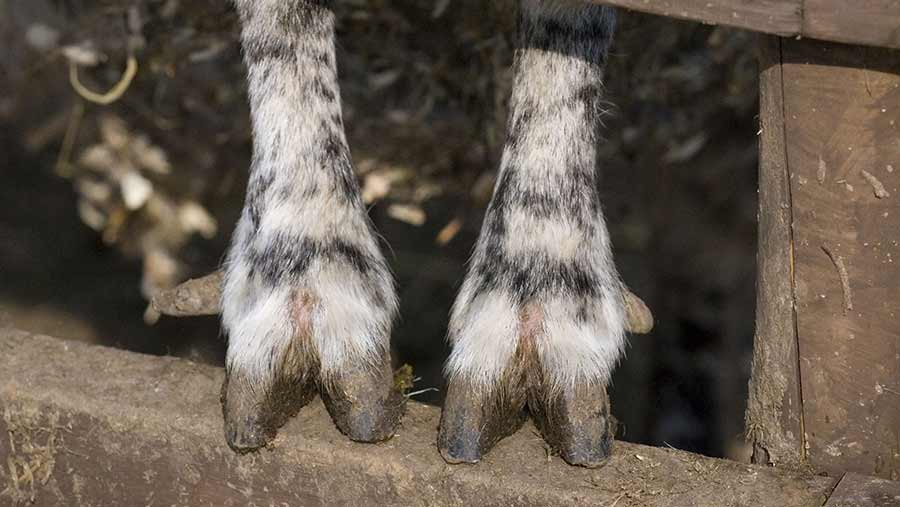Vaccine breakthrough could help tackle foot-rot in sheep
 © FLPA/REX/Shutterstock
© FLPA/REX/Shutterstock Antibiotics-free control of a bacterium responsible for calf diphtheria and liver and foot abscesses in sheep and cattle could be around the corner, researchers say.
A $1.5m (£1.23m) Kansas State University (KSU) project has patented a method to vaccinate cattle against Fuscobaterium necrophorum infection, which causes liver abscesses.
A vaccine against the bacterium in cattle is currently undergoing testing, according to the university’s College of Veterinary Medicine.
See also: How to correctly diagnose and treat the main causes of sheep lameness
The two-pronged vaccination approach could help in the current global push for reducing antibiotics use, says KSU professor Sanjeev K Narayanan.
He says the vaccine is an alternative to antibiotics use, which is being minimised in the US through Food and Drug Administration guidance
Two-pronged approach
- Stage one: Immunises the animal against leukotoxins, which kill the liver’s natural weapons against the bacteria (white blood cells and Kupffer cells). Antibodies are built up and “neutralise” the toxin.
- Stage two: Antibodies generated in the animal prevent bacterial attachment due to its effect on a protein in the bacterium responsible for attaching to organs.
UK implications
A vaccine against F necrophorum could assist UK sheep keepers in tackling lameness and liver abscesses in livestock, which are associated with intensive rearing methods.
However, current vaccine licensing and testing is for its efficacy on cattle liver abscesses and further clinical trials will be required to determine its suitability for sheep health.
This is according to Rachel Clifton, University of Warwick School of Life Sciences, who is studying the bacterium, one of the primary pathogens in liver abscesses and a secondary pathogen in foot-rot.
“We know that F necrophorum is involved in foot-rot in sheep as a secondary pathogen. Recent work at the University of Warwick has suggested that it may increase the severity of the disease,” she tells Farmers Weekly.
“Therefore, if there were to be an effective F necrophorum vaccine, it might help to prevent foot-rot, or at least reduce disease severity in affected animals.”
She stresses that foot-rot is a complex disease involving multiple bacterial species.
